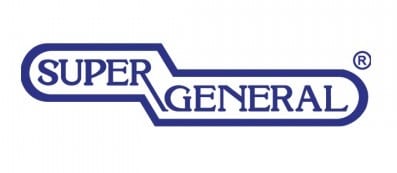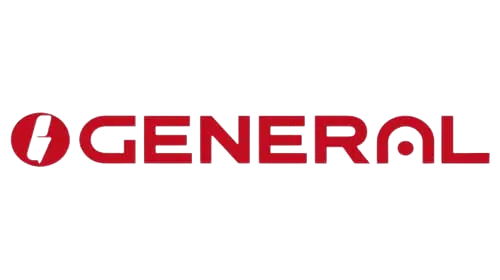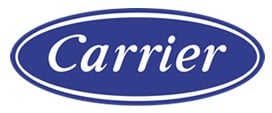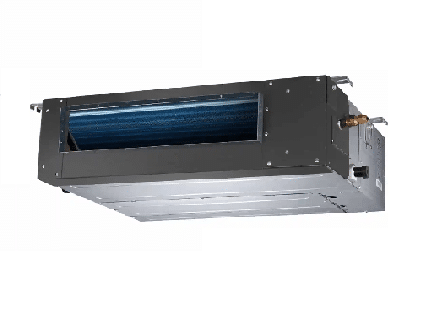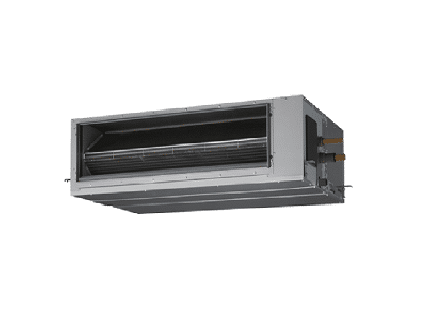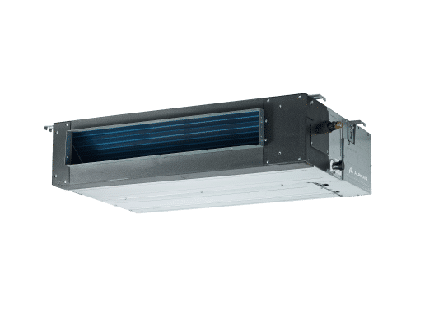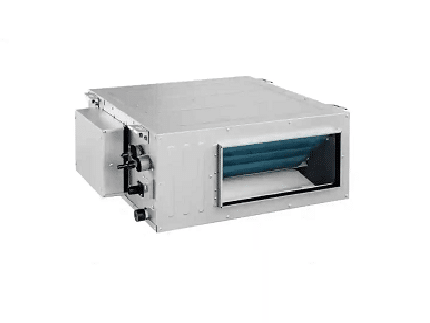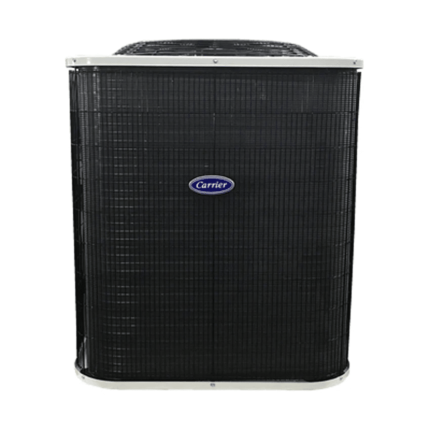Ducted Air Conditioner
- Carrier
- Gree
- Midea
- O General
Super General Ducted 36000 BTU SGDA3610HE
Super General Ducted 33000 BTU SGDA3010HE
Super General Ducted 33000 BTU – SGDA3010HE
Ogeneral ARGA36FMTA-U− Ducted AC 3.0 ton
O General Ducted AC 5.0 ton Model – ARGA60FHTA-U
O General Ducted AC 3.75 ton Model – ARGA45FMTA-U
Midea MHGT-55HWFN1 Ducted Inverter 4.58 ton
Midea Ducted Top discharge Discharge 5.0 ton Model- MTB-60CWN1
Midea Ducted AC 3.5 ton Model – MHGT4-42CWN2
Gree GULD48PHS/B-K(S)/GUTL48W/B-M(S) Ducted AC
Gree GUD60PHS/A1-S(S)/GUTD60W/A1-S(S) Ducted AC
Gree Ducted AC GUD48PHS/A-S(S)/GUTD48W/A-S(S)
Carrier Ducted-SLIM AC 5 ton Model- 42TKS060-71ECRE Split System
Carrier Ducted-SLIM 42TKS042-71UCR1 Split System 3.5 ton
Carrier Ducted Split AC 4 Ton Model- 42TKS048-71UCR1 Split System
Ducted Air Conditioning System: Efficient Cooling for Your Home
When it comes to keeping your home cool and comfortable, a reliable air conditioning system is essential. Among the different types of air conditioning systems available, ducted air conditioning stands out as a highly efficient and effective solution. In this article, we will explore the benefits of ducted air conditioning systems, compare them to central air conditioning units, discuss the best central AC options, and provide insights into installation and maintenance. Let's dive in!
Understanding Ducted Air Conditioning Systems
What is a ducted air conditioning system?
A ducted air conditioning system is a centralized cooling solution that cools multiple rooms or zones within a building using a network of ducts. It consists of a central cooling unit, typically located in the attic or basement, and a series of ducts that distribute the conditioned air to individual areas.
How does a ducted air conditioning system work?
The central cooling unit of a ducted system draws in warm air from the rooms through return air grilles. The air then passes through a cooling coil, where it is cooled by the refrigerant. The cooled air is then forced back into the rooms through supply air registers installed in the ceilings, walls, or floors. The process continues until the desired temperature is achieved in each zone.
Advantages of ducted air conditioning systems
Ducted air conditioning systems offer several advantages. Firstly, they provide consistent cooling throughout the entire home, ensuring each room is maintained at a comfortable temperature. Secondly, they are discreet and unobtrusive, with only the supply air registers visible in the living spaces. Additionally, ducted systems allow for zoning, enabling different areas to be cooled independently based on individual preferences.
Exploring Central Air Conditioning Units
What is a central air conditioning unit?
A central air conditioning unit, often referred to as a central AC, is a cooling system that utilizes a central compressor unit, typically located outside the building, and a network of ducts to distribute conditioned air. It is designed to cool the entire house and maintain a consistent temperature throughout.
How does a central air conditioning unit work?
A central AC unit works by drawing warm air from the house through return ducts. This air is then passed through a filter to remove dust and debris. The filtered air is directed to the central unit, where it is cooled and dehumidified by the refrigerant. The cooled air is then pushed back into the house through supply ducts and distributed through vents or registers in each room.
Benefits of central air conditioning units
Central AC units offer numerous benefits for homeowners. Firstly, they provide efficient and consistent cooling throughout the entire house, ensuring a comfortable environment in every room. Secondly, central AC units are generally quieter compared to other types of cooling systems, as the main compressor unit is located outside the living spaces. Additionally, central AC units can also improve indoor air quality by filtering out allergens and pollutants.
Choosing the Best Central AC for Your Needs
When selecting the best central AC system for your home, several factors should be considered.
Factors to consider when selecting a central AC
Energy efficiency and cost savings: Look for systems with high energy efficiency ratings, such as SEER (Seasonal Energy Efficiency Ratio) ratings. Higher SEER ratings indicate greater energy efficiency and potential cost savings over time.
Size and capacity requirements: Ensure that the central AC system you choose is appropriately sized for your home. Undersized units may struggle to cool the space efficiently, while oversized units can lead to frequent cycling and energy wastage.
Noise levels and soundproofing: Consider the noise levels produced by the central AC unit. Look for systems with noise reduction features or consult with HVAC professionals about soundproofing options.
Additional features and customization options: Explore advanced features like programmable thermostats, humidity control, and smart home integration. These features can enhance convenience and energy management.
Installation and Maintenance of Central AC Systems
Installing and maintaining a central AC system properly is crucial for optimal performance and longevity.
Professional installation process
It is recommended to hire a professional HVAC technician for the installation of a central AC system. They have the expertise to determine the appropriate system size, design the ductwork layout, and ensure proper installation, refrigerant charging, and electrical connections.
Regular maintenance and servicing
Regular maintenance is essential to keep the central AC system running efficiently. This includes cleaning or replacing air filters, checking refrigerant levels, inspecting ductwork for leaks, and ensuring the proper functioning of the compressor, condenser, and evaporator coils.
Extending the lifespan of your central AC
To extend the lifespan of your central AC system, follow these tips:
- Keep the outdoor unit free from debris, leaves, and obstructions.
- Maintain proper airflow by ensuring vents and registers are unblocked.
- Schedule regular professional maintenance to detect and address any issues early on.
- Use programmable thermostats to optimize temperature settings and reduce unnecessary cooling.
Tips for Efficiently Using a Central AC System
To maximize the efficiency and performance of your central AC system, consider the following tips:
Setting the optimal temperature
Set the thermostat to a temperature that provides comfort without excessive cooling. Each degree increase can lead to energy savings, so finding a balance is key.
Zoning and temperature control
Take advantage of zoning capabilities if your central AC system supports it. This allows different areas or zones of your home to be cooled independently, optimizing comfort and energy usage.
Proper insulation and sealing
Ensure your home is properly insulated and sealed to minimize cool air leakage. Insulate attics, walls, and ductwork, and seal gaps around windows, doors, and vents to prevent air leaks.
Regular air filter replacements
Clean or replace air filters regularly to maintain proper airflow and ensure efficient operation of your central AC system. Clogged or dirty filters can restrict airflow and reduce cooling performance.
Conclusion
In conclusion, a ducted air conditioning system and central air conditioning units are both effective options for cooling your home. Ducted systems provide zoned cooling and discreet aesthetics, while central AC units offer whole-house cooling and improved indoor air quality. When choosing the best central AC system for your needs, consider factors such as energy efficiency, size requirements, noise levels, and additional features. Proper installation, regular maintenance, and efficient usage will ensure optimal performance and longevity of your central AC system.
FAQs
Central AC units can last between 10 to 15 years, depending on factors such as maintenance, usage, and the quality of the unit.
Yes, it is possible to install a central AC system in older homes without existing ductwork. However, it may require professional installation and the addition of ducts, which can increase the overall cost.
The cost of a central AC system installation can vary depending on factors such as the size of the home, the complexity of the installation, and the chosen brand and model. On average, installation costs range from $3,000 to $7,000.
It is recommended to have your central AC system serviced annually by a professional HVAC technician. Regular maintenance helps identify and address any issues before they escalate and ensures optimal performance.
Yes, many central AC units are compatible with smart home technology. You can control and monitor your cooling system remotely using smart thermostats and integrate it into your home automation system for enhanced convenience and energy management.


